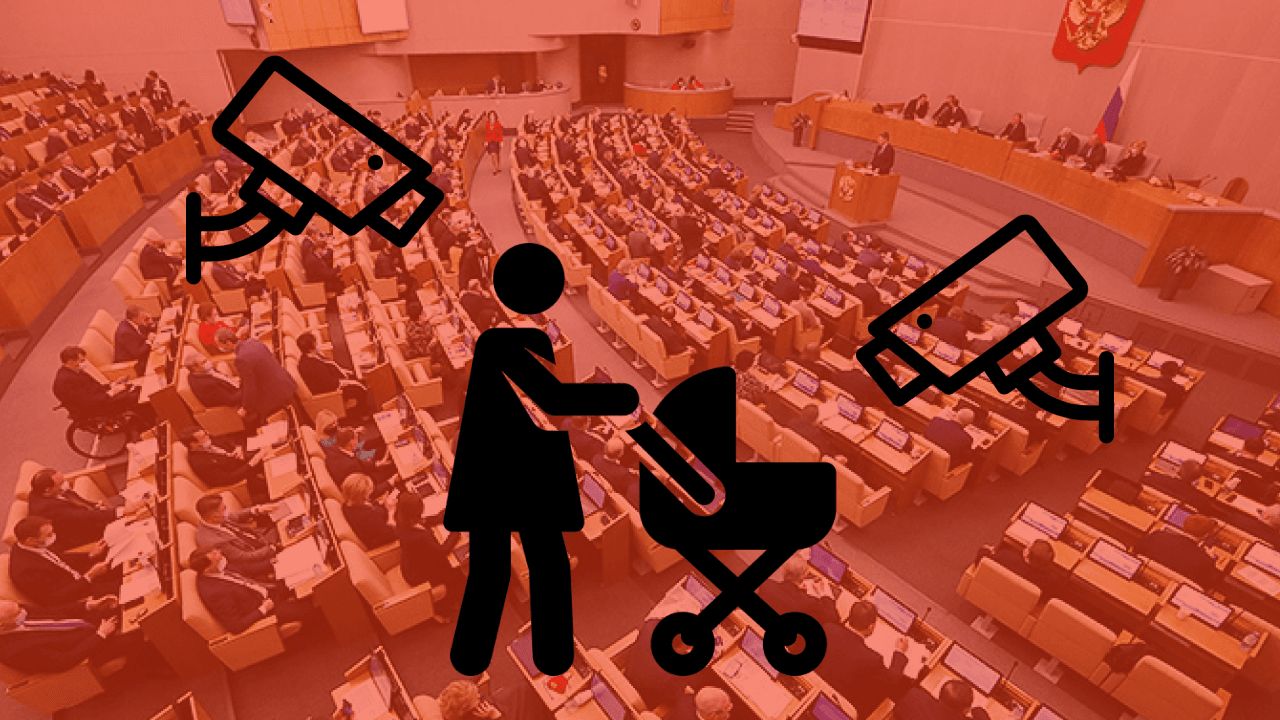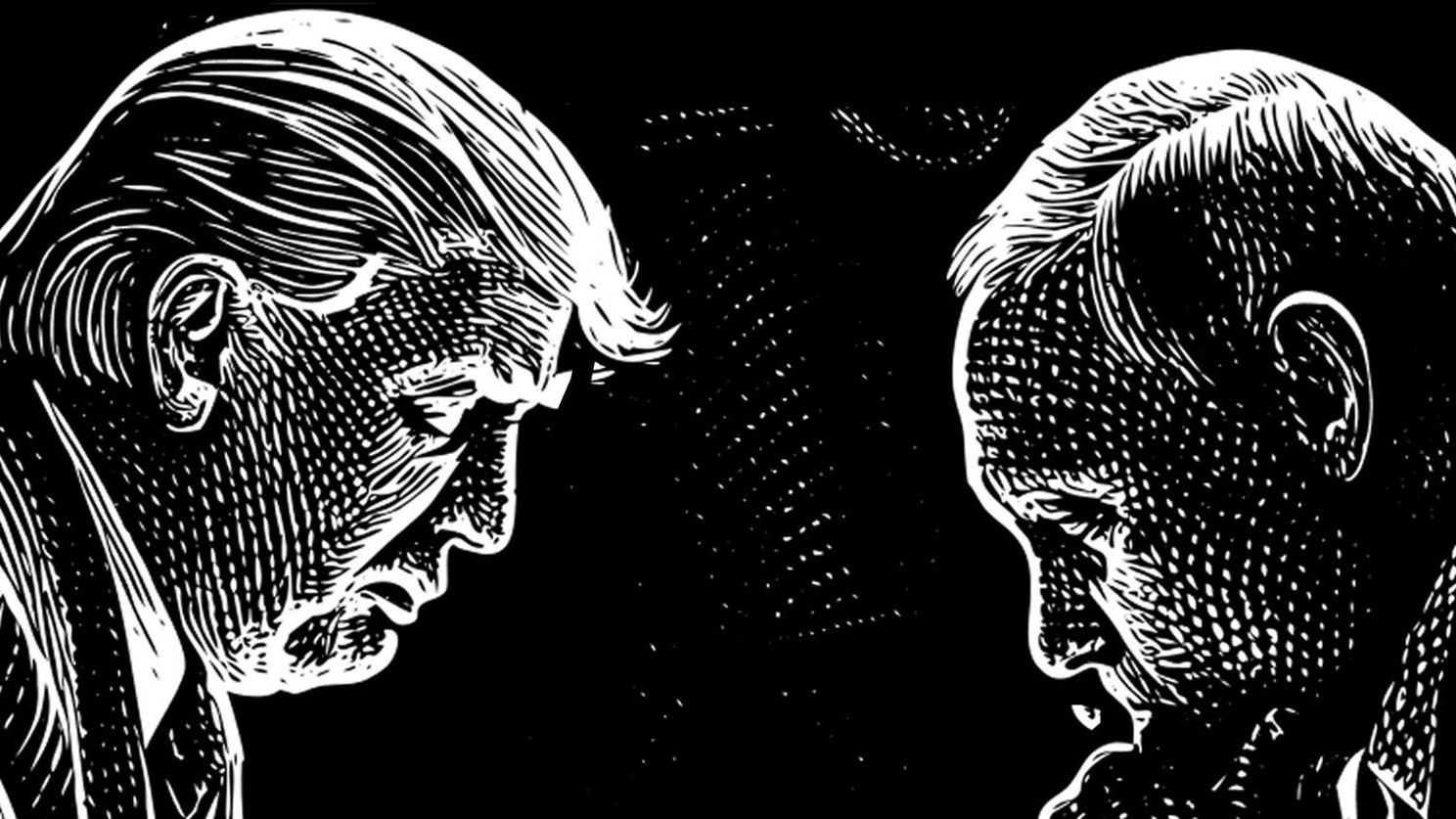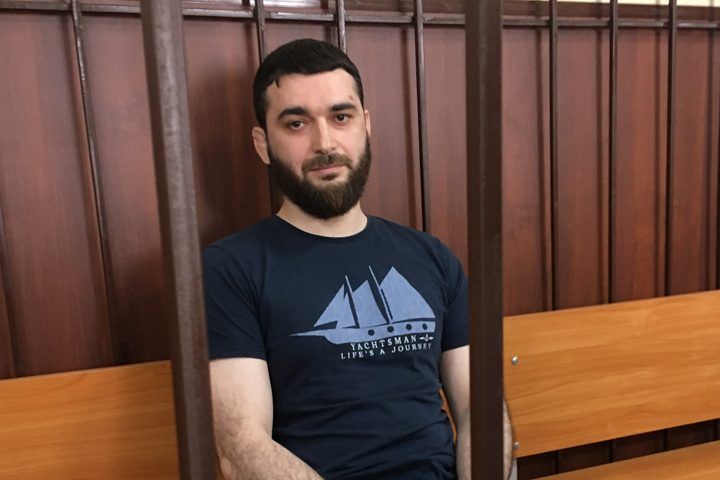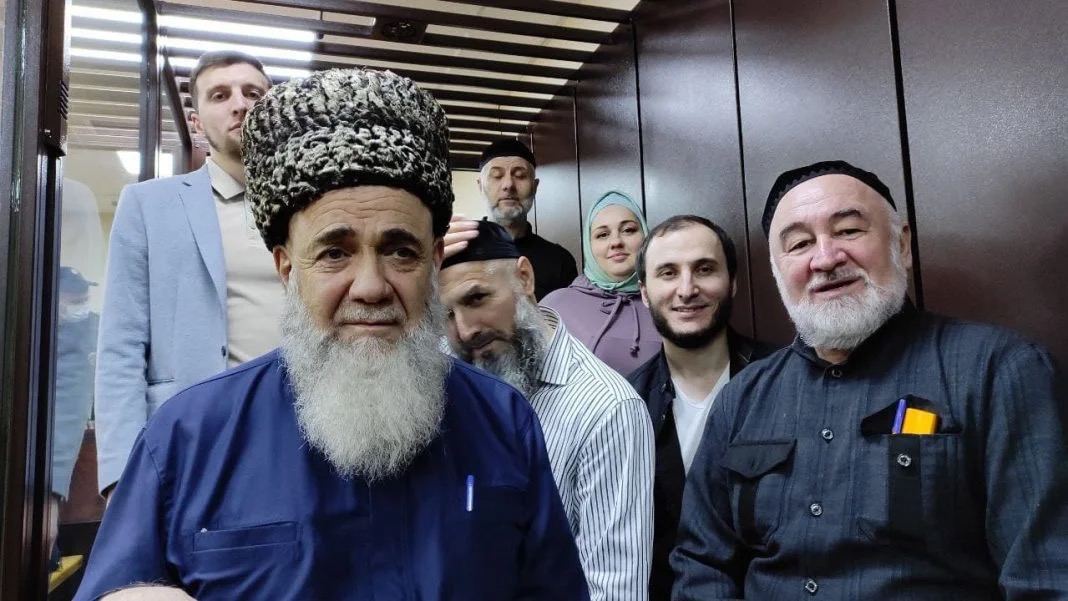This material is available in other languages:
ru
13 Nov 2024
The State Duma passed a law banning childlessness propaganda. Detailed analysis

On 11 November 2024, the State Duma passed the third reading of the law banning propaganda of childlessness. After approval by the Federation Council and the President, amendments will be made to the Federal Law "On Information, Information Technologies and Information Protection", certain legislative acts and the Code of Administrative Offences. Let's find out who will be held liable and whether the law is discriminatory (spoiler - yes) with Anastasia Zakharova, a lawyer at the Memorial Centre.
Table of contents
- How the bill was prepared
- What is a "refusal to procreate"?
- Punishment
- Why this law is problematic
- What international standards are being violated?
How the bill was prepared
This is not the first initiative by lawmakers to ban content related to the conscious refusal to have children. Back in 2022, the Kurultai (State Assembly) of the Republic of Bashkortostan, together with State Duma deputies Elvira Aitkulova and Rimma Utyasheva, proposed to enshrine in law that information related to voluntary childlessness and the ideology of childlessness is harmful to children's health and (or) development. The authors of the bill stated that the foreign ideology of "childlessness" forms the basis of destructive social behaviour - the alleged voluntary refusal to have children is contrary to traditional family values and Russian state policy. It is worth noting that this bill proposed to spread the idea of childlessness not only among children.
The Russian government did not support the bill at the time because it did not define the concepts of "voluntary childlessness" and "ideology of childlessness". It was also pointed out that the prohibition of childlessness propaganda was already included in the scope of "information denying family values", the dissemination of which among children was already prohibited.
On 25 September 2024, a group of deputies returned with a new initiative to ban childfree propaganda. Now it was proposed to ban the dissemination of such information not only among children, but also among the entire population. In a separate bill, the deputies proposed to amend Article 6.21 of the CAO, which provides for liability for the propagation of certain information. Thus, the deputies decided not only to prohibit the dissemination of information on childlessness, but also to punish those who openly promote the idea of childlessness.
The basis of all such initiatives is always the same: traditional values. This time, the deputies believe that the ideology of childlessness is a threat to traditional values and, in particular, to the family. The deputies also believe that the amendments to the CAO are a mechanism to protect traditional values.
The committees of the State Duma gave a positive assessment of the bill. In particular, the Committee on the Protection of the Family, Fatherhood, Motherhood and Childhood believes that the ideology of "child-free" is destructive, as these values are alien to the Russian people and cultivate selfishness, permissiveness and immorality. The only thing that confused the expert committees was the lack of criteria for the concept of "childlessness", since it is necessary to exclude the possibility of its broad interpretation. At the same time, no one paid attention to the comments on the 2022 bill - that such information is already prohibited among children as information that denies family values.
What is a "refusal to procreate"?
MEPs tried their best to define what constitutes a refusal to procreate. There was an initiative to create three exceptions in which a refusal to procreate would not be considered a violation of the law: when such a refusal is related to medical contraindications, religious beliefs and material difficulties. Interestingly, from the point of view of the authors of these amendments, the financial situation is a much more important reason for inability/unwillingness to have children than a person's free choice. Interestingly, from the point of view of the authors of these amendments, the financial situation is a much more important reason for reporting inability/unwillingness to have children than just a person's free choice.
Another initiative proposed the following definition "Abstinence is the belief in and practice of not having children for ideological and political reasons, with the aim of changing public opinion. Abstinence is not a personal choice and the circumstances of private life. The presentation in printed materials of historical events and/or facts, officially imposed restrictions and circumstances of private life cannot be qualified as a refusal to procreate".
I wonder how the bill's authors propose to assess the extent to which someone's beliefs and motivations are specifically intended to change public opinion. And while this bill talks about personal choice and circumstances of privacy, the authors clearly don't mean that - if they believed in personal choice, this bill wouldn't exist.
The author of the third initiative proposed that information on the safety of induced abortion should not be promoted at all, and that information aimed at forming negative attitudes towards pregnancy should not be promoted. Not only does this initiative contradict the current legislation, it also fails to clarify what constitutes a refusal to give birth.
As a result, in the third reading, the amendment was adopted, which reads: "It is not an administrative offence to disseminate information about monasticism and the monastic way of life, observance of the vow of celibacy and related refusal to bear children, and/or to carry out public actions aimed at forming the attractiveness of monasticism and the monastic way of life, the observance of the vow of celibacy and related refusal of childbearing, if such information and public actions are based on the internal regulations of the central government. Thus, any public refusal to procreate that is not related to religious beliefs violates Russian law.
Punishment
The amendment was made to Article 6.21 of the CAO - the very article that provides for administrative responsibility for propaganda of non-traditional sexual relations and sex change.
Propaganda means:
- creating the attractiveness of refusing to have children;
- misrepresentation of the social equivalence of childbearing and childlessness;
- providing information on or arousing interest in the refusal to bear children.
The administrative fine for violating this article is from 200 to 400 thousand rubles. For officials - from 100 to 800 thousand roubles. The highest fines are for legal entities - from 800 thousand to 5 million rubles, and administrative suspension of activities for up to 90 days is also possible.
Separate sanctions are provided for foreign citizens and stateless persons - they can be fined from 50 to 400 thousand rubles. They may also be subject to administrative detention for up to 15 days or administrative expulsion from Russia.
Why this law is problematic
In fact, it is a ban on speaking freely about one's reproductive choices, i.e. not wanting to have children for any reason. It also jeopardises the dissemination of information about abortion and possibly contraception. Since the concept of "refusal to procreate" is interpreted too broadly, in theory even stories about the difficulties of motherhood in the eyes of law enforcement can be considered information that constitutes a refusal to procreate.
Article 6.21 of the CAO is notorious for its legal ambiguity and broad interpretation. It has been repeatedly criticised by international bodies for its incompatibility with international human rights standards.
The adoption of these laws, which do not clearly define what exactly constitutes a childless person, is likely to lead to a high level of self-censorship among citizens and organisations in order to avoid the risk of liability. As a result, information about women's reproductive rights, contraception, sex education and simply how difficult it is to be a parent will simply not be available to many. Even before the amendments were passed in the third reading, many online resources discussing the difficulties of motherhood were shut down.
In order to demonstrate that the aim of the authorities is in fact to stigmatise and exclude from public discussion all those who deliberately refuse to have children, it is worth looking at the ruling of the Constitutional Court in 2014 on the case concerning the verification of the constitutionality of Art. 1 of Article 6.21 of the CAO. The court assured that people with non-traditional sexual orientation are not restricted in their rights and can continue to talk about LGBT+ issues. The judges pointed out that "issues related to sexual self-determination are not excluded from public discussion. Citizens, including those whose sexual orientation differs from the generally accepted one, cannot be deprived of the possibility, in order to protect their rights and legitimate interests ... of using all means not prohibited by law to draw public attention to the facts of their violations, in particular by organising and holding public events or through the media". In reality, the application of the provision prohibiting propaganda of non-traditional sexual relations among minors and, from 2022, among the general population, has resulted in a de facto ban on positive statements about LGBT+ people, on speaking freely about their problems, on showing LGBT+ people in clips/films, and on education on this topic.
Similar to the ban on speaking positively about LGBT+ people, there will be a ban on speaking positively about voluntary childlessness. First and foremost, of course, this violates the rights of women and girls who will not be able to talk about their reproductive rights and for whom information about abortion will be even more difficult to access. Women who choose not to become mothers will be socially ostracised. This is reflected in the text of Article 6.21, which states that social equality cannot be promoted between those who choose to become parents and those who choose not to have children. Thus, women who choose not to become mothers, for example, are considered socially unequal by the state.
What international standards are being violated?
The prohibition of propaganda of the "childfree" ideology violates first and foremost the fundamental right to freedom of expression (Article 19 of the International Covenant on Civil and Political Rights - ICCPR) and the prohibition of discrimination (Article 26 of the ICCPR). In fact, there are many more violations of international standards. It is worth mentioning at least the violation of Article 1, Article 2(f), Article 16(e) of the Convention on the Elimination of All Forms of Discrimination against Women.
Moreover, the right to freedom of expression and the prohibition of discrimination underpin the full enjoyment of a wide range of other rights.
The right to freedom of expression is one of the fundamental human rights enshrined both in international treaties (Article 19 of the International Covenant on Civil and Political Rights) and in the Constitution of the Russian Federation (Article 29). The right to freedom of expression consists of the right to hold opinions without interference and the right to freedom of opinion.
The right to freedom of expression includes the right to seek, receive and impart information and ideas.
The right to freedom of expression carries with it special duties and responsibilities. It is also subject to limitations - for example, on the rights of others, the protection of national security, public order, public health or morals. At the same time, these limitations must not jeopardise the very principle of the right.
In other words, access to information can only be prohibited in a very limited number of cases where the restrictions are based on the law and meet the requirements of necessity and proportionality. At the same time, family values are not a sufficient basis for restricting the right on the basis of the protection of morality, since the state must take into account the development of society and changes in the perception of social, civil and interpersonal issues.
In this way, the state first and foremost deprives a large number of women and girls of their right to access information on abortion, reproductive rights, the difficulties of motherhood and, in general, different perspectives on parenthood. It also violates the rights of all those who choose not to become parents and to speak openly about this experience.
Article 26 of the ICCPR enshrines the prohibition of discrimination - that is, the state is obliged to ensure equality of rights regardless of colour, sex, language, religion, political or other opinion etc. At the same time, it has been repeatedly stated that traditional values cannot be used to justify discrimination.
The law passed by the State Duma banning the propaganda of childless people is discriminatory because, according to the text of the new law, those who choose not to have children are inferior to those who openly talk about the joys of having children. Such laws create a bias against those who choose to be childless. There is no compelling reason to justify this prejudice.





